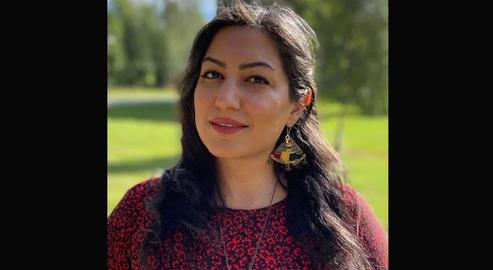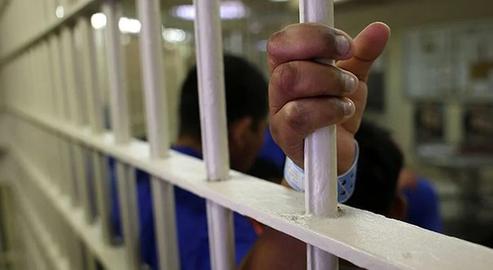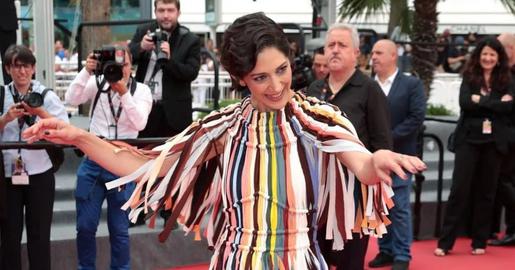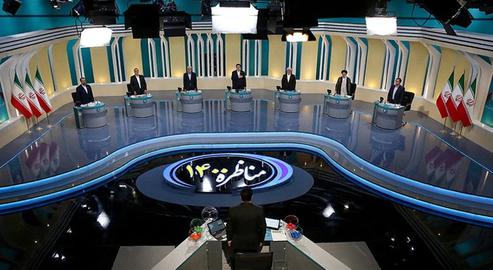Mahdieh Golroo is a women’s rights activist who has been repeatedly detained in Iran for her political activity. The former prisoner of conscience has told IranWire that in her experience, jailed LGBT Iranians suffered the worst treatment of all at the hands of the guards.
"Heterosexual women and men alone face many problems in prison,” she said. “The conditions are worse for women, and for religious and ethnic minorities. Violence and harassment against the LGBT community, though, is the most commonplace because they are in a ‘lower’ position and the power structure allows them to be discriminated against and humiliated more."
Golroo was first arrested in December 2009 for her early peaceful activism. She was then jailed again in 2014 after taking part in a women’s protest in Tehran. Between long periods in solitary confinement, she spent time on the public wards of several different prisons and got to know many members of the LGBT community, especially transgender people.
“Their identities were not recognized,” she says, “and so there was usually a lot of conflict during their period of temporary detention, before their transfer to the women’s or the men’s ward. In difficult circumstances, these people were forced to constantly prove their true identities.
“People who define their identities as female and are imprisoned alongside men, or the other way around, may be subjected to a great deal of violence, not just from the judicial system, but from their fellow prisoners.
“One of the reasons for this behavior is our society’s ignorance of sexuality and ‘gender’ issues. This makes the conditions in prison very difficult, and even unbearable during the trial. Judges who handle their cases don’t recognize their identities and constantly humiliate and insult them, using very bad slurs to address them, making them mentally even more vulnerable.”
When a trans man is placed on a women’s prison ward, Golroo says, in addition to all the pressures endured by their fellow prisoners, he can struggle with feelings of shame or isolation by those who do not understand his situation.
Many of her fellow inmates from the LBGT community over the years, she says, had been incarcerated for taking part in protests like herself, or for financial or drug-related offences. The lack of family support can often make their stay behind bars harder.
“I’ve often seen these people doing things like washing other people's clothes or cleaning toilets to make a little money to get by on, because they don’t receive support from their families," she said. "The same families often put them in this situation.
“In addition, transgender people who were receiving hormone therapy have no access to their usual medicines in prison, and this means they suffer a lot. Referrals to doctors and to the prison health center are also mostly useless, because it doesn’t matter to them; they have no awareness of the situation at all.”
Golroo recalls Reyhaneh, a transgender woman she spent time inside with, who was beaten a lot during her incarceration. Reyhaneh was first sent to a men's prison but due to her poor physical condition, she was eventually transferred to the women's ward of Evin.
“When she arrived,” Golroo says, “she was badly injured and in a state of shock. She was repeatedly stripped naked and her body examined to make sure she was not a man. Some women wore hijab in front of Reyhaneh, because they said they did not know whether she was a man or a woman, and that bothered her a lot."
In the past year it has come to light that a large number of transgender prisoners and detainees had been transferred to a separate ward of Evin Prison, below ground. They no longer have daily access to the prison store or kitchen, and most cannot afford bail so end up remaining there long after an amount has been determined.
Golroo says even met a trans woman who was raped by soldiers in Vozara detention center. The woman, she says, was abruptly called and taken away, and when she returned a few hours later, “she was shaking all over and I realized that she had been raped. This was not the only time; it was a common practice by officers and soldiers against these people in detention centers or prisons. The reason for their detention is usually their different style of clothing and feminine appearance, which is not acceptable for a so-called man in our society.”
Gay Iranians are also monitored much more closely than other prisoners, she says. "There is a lot of sensitivity in prisons about homosexuality. For example, if they hug each other or have physical contact, they will be severely reprimanded. All the wards in Evin Prison are monitored by cameras, and the smallest movements of prisoners are under scrutiny. The smallest of gestures can lead to trouble.”
Mahdieh Golroo believes that in order to improve the conditions of LGBT prisoners, society's view of the LGBT community in general must change. In jail, these people come under intense pressure from all sides: from the penal system itself, from fellow inmates and from their own families outside. The solution is proper education, which the Islamic Republic does not want to grant people, preferring to criminalize sexual differences as far as possible.
"My friends and I, who were somewhat familiar with these issues, tried to inform others in prison,” Golroo says. “But there should be social workers who are aware of the situation and can help these people in vulnerable groups. Another important thing is for the judiciary to accept these people’s identities when handling cases, as well as changing the culture and outlook of society."
Related coverage:
Disowned by Their Families, Iranian Trans Women Turn to Sex Work
Of Violence and Tragicomedy: Life as a Gay Iranian Asylum Seeker in Turkey
Gay Iranian Man Murdered by Family on Being 'Outed' by Military Service Card
"I Played My Role Too Well": Iranian Trans Woman Living a Double Life
Counselling or Coercion? LGBTQ+ Iranians Face Pervasive Ignorance in the Medical Community
visit the accountability section
In this section of Iran Wire, you can contact the officials and launch your campaign for various problems





















comments